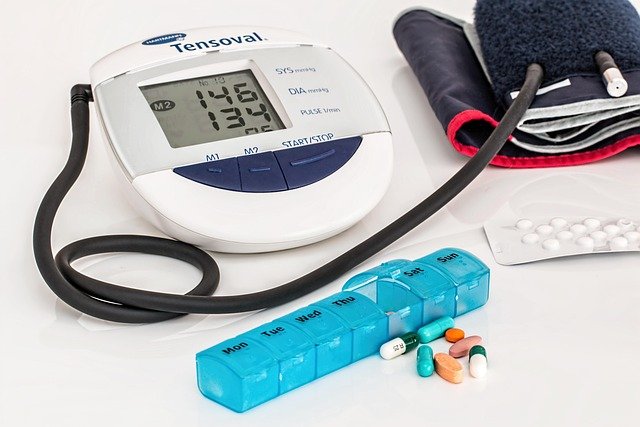What are the early symptoms of heart failure?
Heart failure is a serious condition that affects millions of people worldwide. It occurs when the heart cannot pump blood efficiently to meet the body's needs. Recognizing the early symptoms of heart failure is crucial for timely diagnosis and treatment. This article will explore the early signs of heart failure, how it progresses, and when to seek medical attention.

What is heart failure and how does it develop?
Heart failure is a chronic condition that develops gradually over time. It can result from various underlying heart problems, such as coronary artery disease, high blood pressure, or valve disorders. As the heart weakens, it struggles to pump blood effectively, leading to a cascade of symptoms. Understanding the progression of heart failure is essential for early detection and management.
What are the most common early symptoms of heart failure?
The early symptoms of heart failure can be subtle and easily overlooked. Some of the most common signs include:
-
Shortness of breath, especially during physical activity or when lying down
-
Persistent coughing or wheezing
-
Fatigue and weakness
-
Swelling in the ankles, feet, or legs (edema)
-
Rapid or irregular heartbeat
-
Decreased exercise tolerance
It’s important to note that these symptoms may vary from person to person and can develop gradually over time.
How does heart failure affect different parts of the body?
Heart failure impacts multiple organ systems throughout the body. As the heart struggles to pump blood efficiently, various organs and tissues may not receive adequate oxygen and nutrients. This can lead to:
-
Fluid buildup in the lungs, causing breathing difficulties
-
Reduced blood flow to the kidneys, affecting their ability to remove excess fluid and waste
-
Liver enlargement due to blood backing up in the organ
-
Decreased blood flow to the brain, potentially causing confusion or memory problems
-
Muscle weakness and fatigue due to inadequate oxygen supply
Understanding how heart failure affects the body can help individuals recognize the importance of early detection and treatment.
When should you seek medical attention for heart failure symptoms?
If you experience any of the early symptoms of heart failure, it’s crucial to consult a healthcare professional promptly. Seek immediate medical attention if you notice:
-
Sudden, severe shortness of breath
-
Chest pain or discomfort
-
Fainting or severe weakness
-
Rapid or irregular heartbeat accompanied by chest pain or shortness of breath
-
Coughing up pink, foamy mucus
Early intervention can significantly improve outcomes and quality of life for individuals with heart failure.
What lifestyle modifications can help manage heart failure?
While heart failure is a serious condition, certain lifestyle changes can help manage symptoms and slow disease progression:
-
Follow a heart-healthy diet low in sodium and saturated fats
-
Engage in regular, moderate exercise as recommended by your healthcare provider
-
Maintain a healthy weight
-
Quit smoking and limit alcohol consumption
-
Manage stress through relaxation techniques or counseling
-
Monitor your fluid intake and weight daily
These lifestyle modifications, combined with proper medical care, can significantly improve heart health and overall well-being.
What treatment options are available for heart failure?
Treatment for heart failure typically involves a combination of medications, lifestyle changes, and in some cases, medical procedures. Common treatment options include:
-
Medications: ACE inhibitors, beta-blockers, diuretics, and other drugs to manage symptoms and improve heart function
-
Cardiac rehabilitation programs to improve physical fitness and heart health
-
Implantable devices such as pacemakers or defibrillators to regulate heart rhythm
-
Surgical procedures, including coronary bypass or valve repair, when necessary
-
Advanced therapies like ventricular assist devices or heart transplantation for severe cases
| Treatment Option | Description | Potential Benefits |
|---|---|---|
| Medications | Various drugs to manage symptoms and improve heart function | Reduce symptoms, slow disease progression |
| Cardiac Rehabilitation | Supervised exercise and education programs | Improve physical fitness and quality of life |
| Implantable Devices | Pacemakers or defibrillators to regulate heart rhythm | Prevent life-threatening arrhythmias |
| Surgical Procedures | Coronary bypass, valve repair, or other heart surgeries | Improve heart function and blood flow |
| Advanced Therapies | Ventricular assist devices or heart transplantation | Life-saving options for severe heart failure |
Prices, rates, or cost estimates mentioned in this article are based on the latest available information but may change over time. Independent research is advised before making financial decisions.
Early recognition of heart failure symptoms is crucial for timely diagnosis and treatment. By understanding the early signs, how heart failure affects the body, and when to seek medical attention, individuals can take proactive steps to manage their heart health. With proper medical care, lifestyle modifications, and treatment options, many people with heart failure can lead fulfilling lives and maintain a good quality of life.
This article is for informational purposes only and should not be considered medical advice. Please consult a qualified healthcare professional for personalized guidance and treatment.




